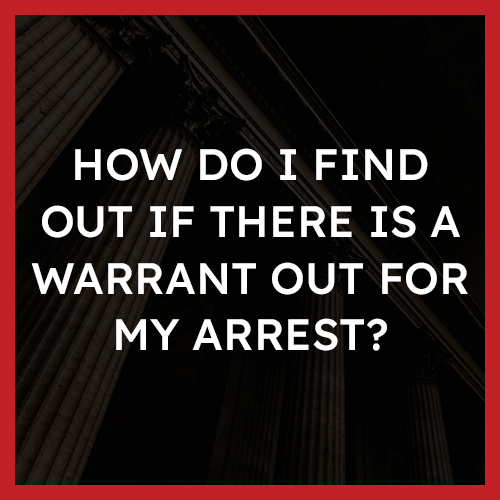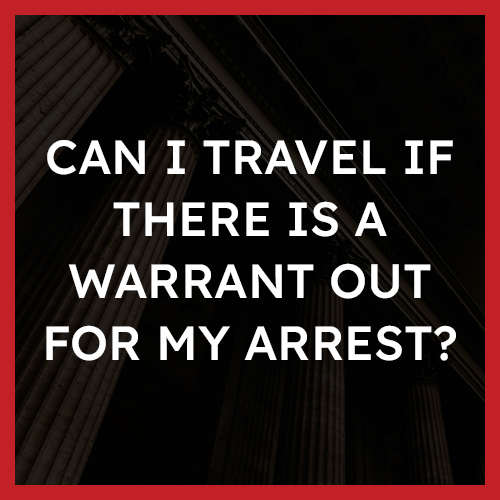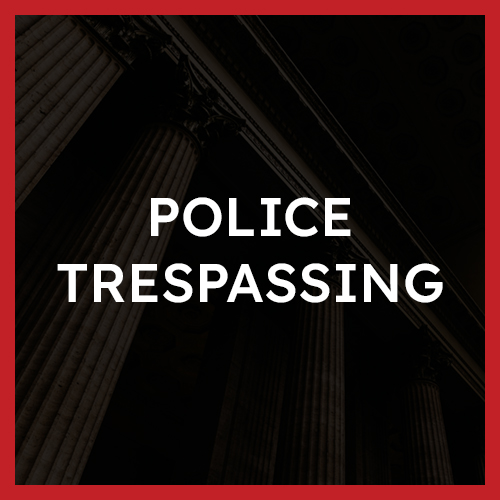How to Find Out If There Is a Warrant for My Arrest?
The most common ways to find out about an arrest warrant include making an inquiry at your local police station, contacting a court clerk, or hiring a criminal defence lawyer.
Options which do not involve retaining a criminal defence lawyer can be risky, as it is possible you will be arrested and have little to no insight about how to resolve your case after being detained.
It is recommended that you hire a criminal defence lawyer so that you can be ahead of the execution of your warrant.
This article will provide an overview of ways to find out you have a warrant, as well as a brief overview of different types.
Police Inquiry: Go to your local police station
If you choose to contact the police, there are some things you should take note of:
- You must visit a police station in person to confirm whether you have a warrant. This is because photo identification is required for police to conduct this search. This cannot be done over the phone or online.
- At the station, police may confiscate your cellphone and search through it to find evidence against you, even if they are not necessarily authorized to do so. For this reason, you may find it in your best interest to leave your mobile device at home.
- Police may require you to stay for the weekend or overnight if you visit the station at the end of the week or in the late hours of the night.
- If the police find that you do in fact have a warrant, you will be arrested at the police station immediately. Once you have been detained, the warrant will be deemed executed.
When you are released from the police station, you will be given paperwork that indicates the offences you have been charged with as well as a date for your court hearing.
Court Clerk: Contact the criminal court clerk
If you choose to make an inquiry at the courthouse, a court clerk will be able to do a search of any outstanding warrants or tickets you may have. The courthouse may charge you a fee for this service.
If there is an ongoing warrant for your arrest, the court clerk will instruct a sheriff to detain you and subsequently transport you to a police station.
Hire A Lawyer: Hire a criminal defence lawyer to check
A criminal defence lawyer can also attain this information by communicating with the Crown Prosecutor’s office.
Retaining a criminal defence lawyer may be incredibly useful to you because relying on their expertise will allow you to remain strategically ahead of the warrant’s execution. For example, our lawyers at Strategic Criminal Defence can assist you in preparing for the bail process before the warrant has been fulfilled.
Our lawyers may also be able to ensure that you avoid jail time altogether by negotiating with the Crown for a Promise to Appear (for more information about what a Promise to Appear entails, see here).
However, in the case that the warrant must be enforced, our team will ensure you follow the correct protocol in turning yourself in and guide you to do so in a timely manner.
We will be able to simplify this likely overwhelming process by explaining, in layman’s terms, how and what you must do to complete any legal obligations you may have.
At Strategic Criminal Defence, we are dedicated to exhausting all options in trying to reduce your time in custody.
Arrest Warrants in Different Provinces
Arrest warrants are usually only valid in the province they are issued. For instance, an arrest warrant that is endorsed by an Alberta justice of the peace will be valid only in Alberta.
However, police officers in other provinces can arrest you if they are alerted about your outgoing arrest warrant. In these circumstances, the police officers may choose to contact the police agency within the jurisdiction where the warrant was issued.
It would be under the discretion of the police agency from the issuing province to either release the accused or have them returned to answer the warrant.
The course of action which is undertaken may depend on the kind of warrant that has been issued. For example, some warrants will specify a geographical boundary that the police can or should travel to arrest an offender.
Depending on the severity of the crime, courts in one jurisdiction may also endorse arrest warrants that have been issued in other jurisdictions. This will result in the arrest of the accused in a province outside of the one that issued the warrant.
For more information regarding arrest warrants in different provinces, please visit our Can I Travel If There Is A Warrant For My Arrest page.
What is a Canada-wide warrant?
If you have committed a grave offence, however, it is likely that you will have a Canada-wide warrant.
A Canada-wide warrant is one in which any Canadian police agency can arrest you regardless of the jurisdiction within which the warrant was issued. Your arrest can occur at any time and at any place.
A Canada-wide warrant (i.e., a federal warrant) is not attached to any particular provincial jurisdiction, and it can only be issued by a superior court judge.
If a Canada-wide warrant is issued for an individual, law enforcement in one jurisdiction may be able to have the offender returned to answer the warrant in another jurisdiction.
Types of Warrants in Canada
While there are many types of warrants in Canada, the four which result in the arrest of the accused include: arrest warrants, bench warrants, surety warrants and telewarrants.
Arrest Warrant
An arrest warrant is an order to arrest an individual for the purpose of bringing them to court.
An arrest warrant will include the alleged perpetrator’s name, the offence they have been accused of and authorization to arrest. It must also be reviewed and signed off by a judge or justice of the peace.
It is ultimately the Court’s decision whether the arrest warrant should be issued.
For more information regarding arrest warrants, please visit our Can I Travel If There Is A Warrant For My Arrest page.
Bench Warrant
A bench warrant gives the police power to arrest an individual who has failed to appear before the court when they were legally obligated to do so (for trial for example).
A bench warrant authorizes police officers to hold in custody the accused until their trial or hearing commences.
Surety Warrant
A surety is someone who agrees to supervise a person that has been released either from custody or from jail, for a duration of time. It also refers to someone who has made bail payments for an offender and who has promised the court that the offender will not commit any subsequent criminal acts. However, this person can formally opt out of providing supervision or bail by making an application to the court.
When this happens, the accused may need to appear in court alongside his or her surety. If the accused fails to do so, a surety warrant will be issued.
A surety warrant will be considered executed when the accused has been arrested.
Telewarrants
In circumstances where it is impractical for police officers to appear in-person before a judge or a justice or a peace to request a warrant, a telewarrant may be issued.
A telewarrant is a warrant obtained over the phone. It has the same authority as one that is given in person.
Regardless of the specific kind of warrant, having a warrant out for your arrest can be mentally taxing. You do not have to go through this alone.
Whether it is navigating the bail process, turning yourself in, or being in custody, our lawyers will guide you at every step.
At Strategic Criminal Defence, we are experienced in vacating warrant charges and will be able to negotiate with the Crown Prosecutor’s office to get a fair and reasonable result for you.
Contact our Calgary criminal lawyers for a free consultation to discuss your case. If you are located outside of Alberta, visit our contact page to request a consultation from our Canada-wide legal team.
About The Author








